Communication Skills: The Definitive Practical Guide With 10 Strategies To Boost Your Interaction
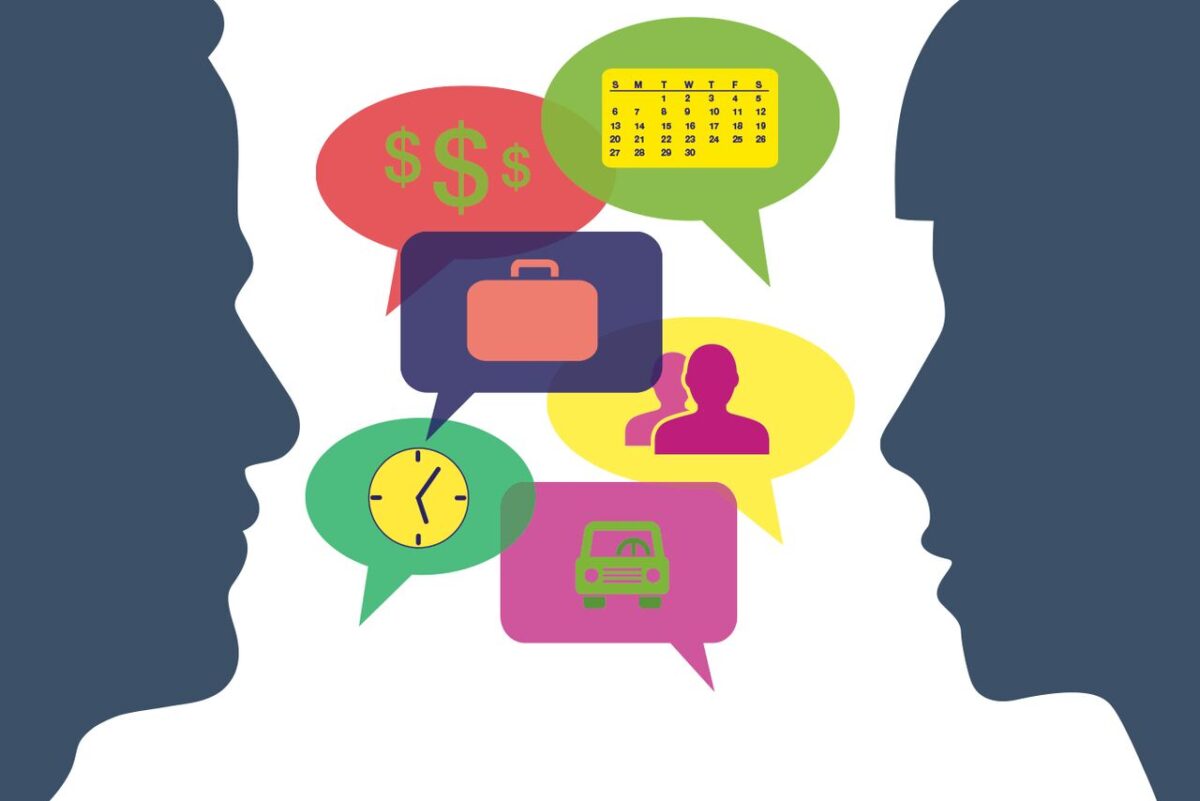
Mastering the Art of Communication Skills
Communication Skills are the backbone of effective interactions, whether in personal relationships, business settings, or everyday conversations. They form the foundation upon which we build trust, express our ideas, and connect with others on a deeper level. In today’s competitive environment, mastering these skills is not just an advantage—it’s a necessity for success and growth.
Being able to articulate your thoughts clearly, listen actively, and adapt your communication style can significantly impact how you’re perceived, how effectively you resolve conflicts, and how well you build relationships. However, improving your Communication Skills isn’t an overnight process; it requires dedication, practice, and a willingness to adapt and learn continuously.
This guide will provide you with 10 proven strategies to enhance your Communication Skills, helping you navigate conversations with confidence, express yourself more clearly, and develop meaningful connections with others.
By implementing these techniques, you’ll not only improve your interactions but also gain the ability to influence and inspire those around you. Ready to take the first step toward mastering the art of Communication Skills? Let’s explore these strategies in detail.
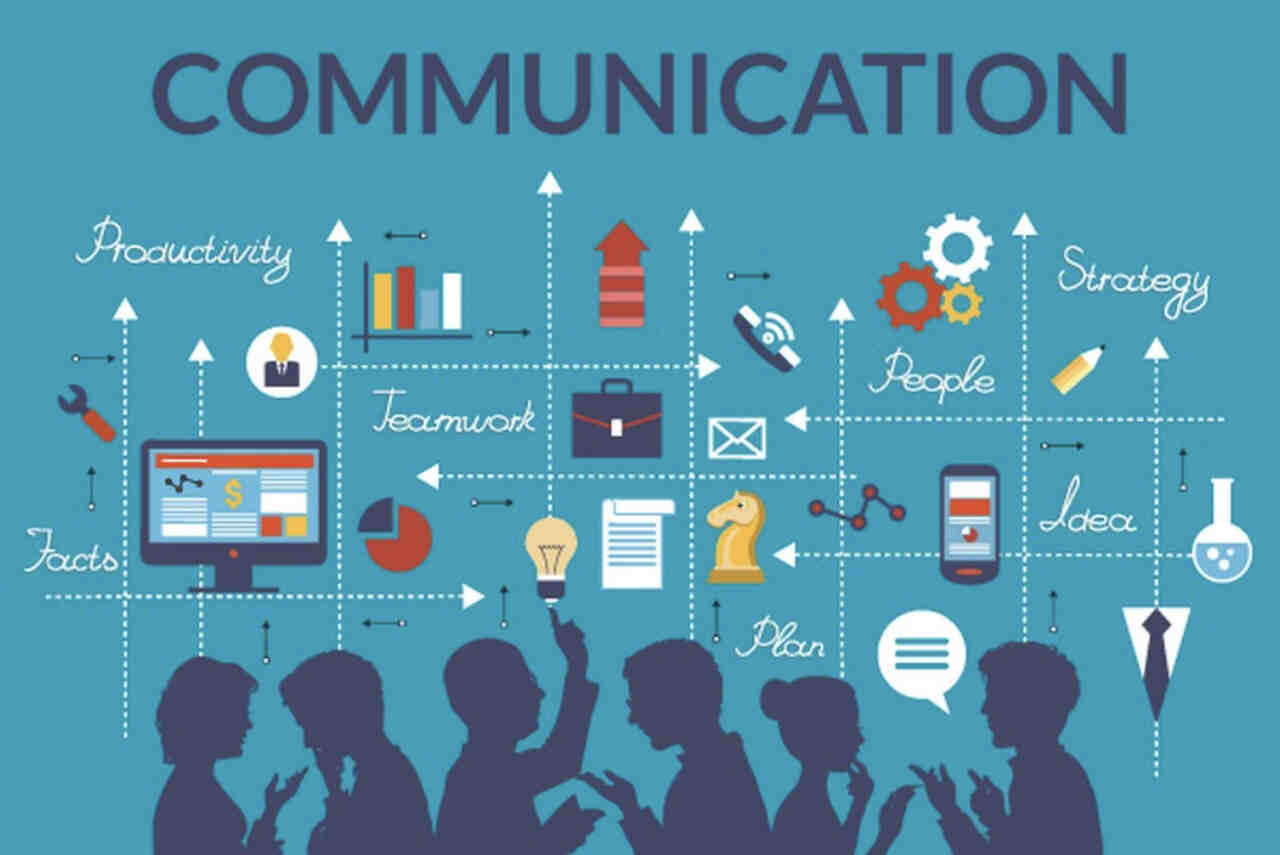
Strategy 1: Listen Actively to Improve Communication Skills
Active listening is one of the most powerful tools for enhancing Communication Skills. It’s not just about hearing words; it’s about fully understanding the speaker’s message, intentions, and emotions. When you listen actively, you create an environment of trust and respect, which encourages open and honest communication. This skill is essential in both personal and professional settings, as it fosters deeper connections and minimizes misunderstandings.
Why Active Listening Matters in Communication Skills
Active listening plays a pivotal role in developing strong Communication Skills because it allows you to respond thoughtfully rather than react impulsively. This approach helps you to understand different perspectives, which can lead to more effective problem-solving and conflict resolution. When others feel genuinely heard, they are more likely to be receptive to your ideas and viewpoints, which enhances collaboration and teamwork.
How to Practice Active Listening Effectively:
- Maintain Eye Contact and Open Body Language: Your body language speaks volumes about your engagement in the conversation. By maintaining eye contact and using open, relaxed gestures, you signal to the speaker that you’re genuinely interested and attentive. This non-verbal cue is a fundamental part of mastering Communication Skills.
- Avoid Distractions: In today’s digital age, it’s easy to get distracted by phones, emails, or other interruptions. To be a truly active listener, put aside distractions and give your full attention to the speaker. This shows that you value their input and are committed to the conversation.
- Show Empathy and Understanding: Empathy is the cornerstone of effective Communication Skills. Try to put yourself in the speaker’s shoes and understand their feelings and perspectives. Responding with phrases like “I understand how you feel” or “That must have been challenging for you” demonstrates empathy and reinforces the connection.
- Ask Thoughtful Questions: Engage with the speaker by asking questions that encourage them to elaborate on their thoughts or feelings. Questions like, “Can you tell me more about that?” or “How did that make you feel?” show that you’re not just passively listening but actively participating in the conversation. This practice strengthens your Communication Skills by making interactions more dynamic and engaging.
- Paraphrase and Summarize: At appropriate moments, repeat or paraphrase what the speaker has said. For instance, you might say, “So, if I understand correctly, you’re saying that…?” This technique confirms that you’ve accurately understood their message and demonstrates that you’re fully engaged in the conversation.
By implementing these active listening techniques, you’ll notice a significant enhancement in your Communication Skills. It not only makes the speaker feel valued and understood but also equips you with insights that can make your responses more thoughtful and relevant. Remember, the foundation of strong Communication Skills begins with the ability to listen attentively and empathetically.

Strategy 2: Enhance Your Non-Verbal Communication Skills for Better Interaction
Non-verbal communication is a fundamental component of effective Communication Skills, as it often speaks louder than words. People tend to form impressions of you based on your body language, facial expressions, and tone of voice, sometimes even more than on what you say. By mastering non-verbal cues, you can significantly improve the clarity and impact of your communication, making you a more persuasive and influential communicator.
The Impact of Non-Verbal Communication on Communication Skills
Non-verbal signals account for a large portion of the overall message conveyed in any interaction. They can either reinforce or contradict your verbal communication. For instance, if you say, “I’m fine,” but your body is tense and your arms are crossed, the non-verbal signals suggest otherwise.
This inconsistency can create confusion or mistrust, highlighting the importance of aligning your non-verbal cues with your spoken words to achieve effective Communication Skills.
How to Master Non-Verbal Communication Techniques:
- Maintain Open and Confident Body Language: Your posture and gestures play a critical role in how others perceive your confidence and openness. Stand or sit up straight, keep your shoulders back, and avoid crossing your arms. Open body language creates an inviting and engaging presence, making you appear more approachable and credible. This adjustment can make a significant difference in your Communication Skills, especially in professional settings like meetings or interviews.
- Pay Attention to Your Facial Expressions: Your face can express a wide range of emotions, from happiness and interest to frustration and confusion. Practice being aware of your facial expressions when communicating, ensuring they align with the emotions and message you’re conveying. A genuine smile, for instance, can create a positive atmosphere and foster better connections, while maintaining eye contact demonstrates attentiveness and sincerity, which are essential aspects of strong Communication Skills.
- Use Your Hands to Reinforce Your Message: Hand gestures can emphasize and clarify your message, making it more engaging for the listener. However, it’s crucial to use them in moderation. Overly animated gestures can be distracting, while no gestures can make you appear stiff or unapproachable. Finding the right balance is key to enhancing your non-verbal Communication Skills.
- Control Your Tone of Voice: Your tone carries emotional weight and can greatly influence how your message is received. Speaking in a calm, steady voice can convey confidence and authority, while variations in pitch and pace can help maintain the listener’s interest. Avoid monotone delivery, as it can make you appear disinterested or unengaged. Adjusting your tone according to the context and message helps improve your overall Communication Skills.
- Mirror the Other Person’s Non-Verbal Cues: Mirroring involves subtly mimicking the body language, tone, and gestures of the person you’re communicating with. This technique helps create rapport and makes the other person feel more comfortable and understood. However, be sure to do this naturally, as forced mirroring can come across as insincere or awkward. This strategy is a powerful way to connect and improve your Communication Skills in social and professional interactions.
- Observe the Non-Verbal Signals of Others: Enhancing your Communication Skills also means being attentive to others’ non-verbal cues. Notice if they seem tense, relaxed, interested, or bored, and adjust your communication style accordingly. This awareness helps you respond more effectively and adapt your approach to keep the conversation engaging and productive.
By consciously practicing and improving your non-verbal communication, you’ll notice a significant boost in your overall Communication Skills. You’ll be able to convey your messages more effectively, build trust and rapport with others, and navigate social or professional settings with greater ease and confidence.
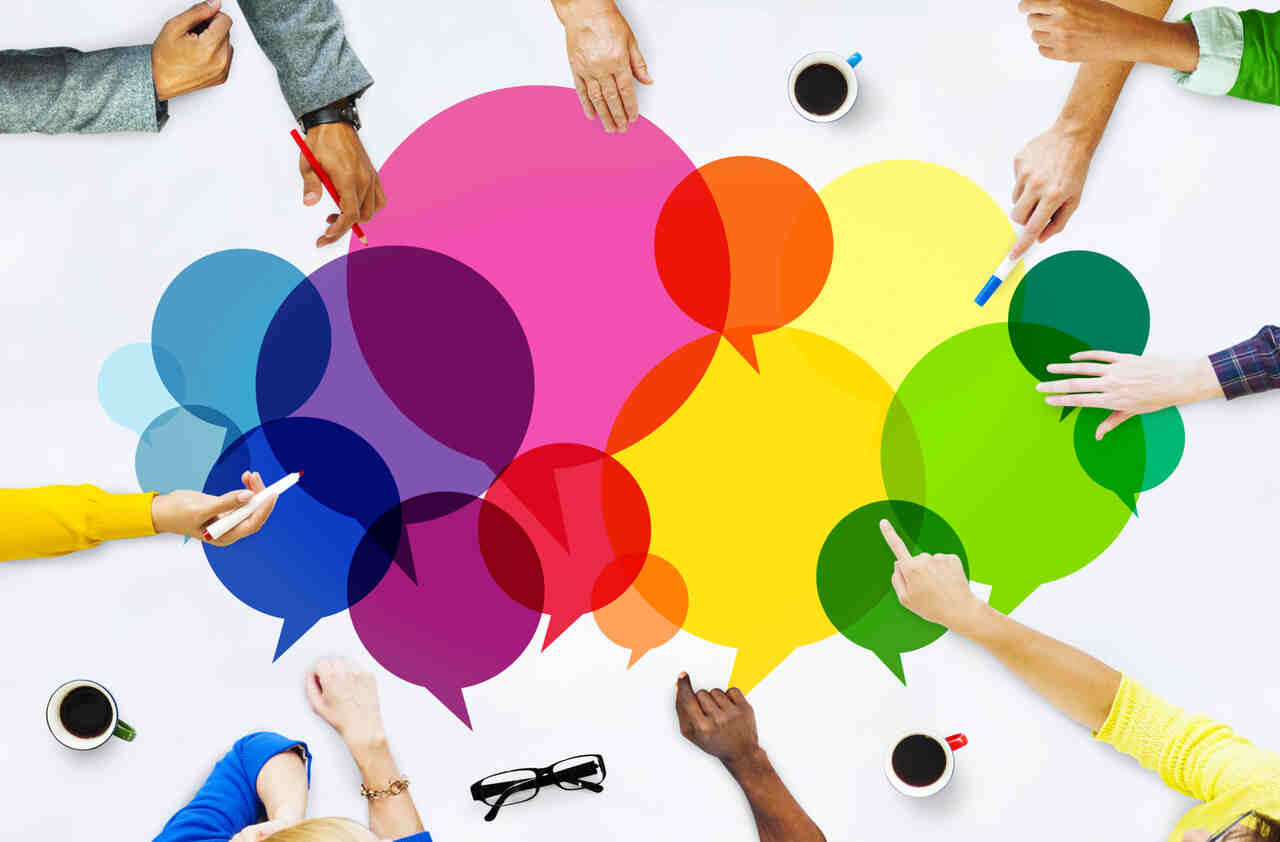
Strategy 3: Practice Active Listening to Enhance Communication Skills
Active listening is one of the most essential Communication Skills you can develop. It’s about fully engaging with the speaker, understanding their message, and responding thoughtfully.
This skill goes beyond simply hearing words; it involves interpreting the speaker’s emotions, intentions, and non-verbal cues to build a genuine connection. By practicing active listening, you foster deeper relationships and facilitate more effective communication.
Why Active Listening Matters for Communication Skills:
Active listening demonstrates empathy, respect, and interest, which helps build rapport and trust in personal and professional settings. It encourages open and honest communication, reducing misunderstandings and conflicts. Mastering this skill significantly enhances your overall Communication Skills, allowing you to interact more effectively and meaningfully with others.
Techniques to Practice Active Listening:
- Focus Entirely on the Speaker: When someone is speaking, give them your full attention. Avoid distractions, such as your phone or background noise, and maintain eye contact. This shows that you are genuinely interested and engaged in the conversation, which is a cornerstone of strong Communication Skills.
- Acknowledge and Respond Appropriately: Use verbal acknowledgments like “I see,” “I understand,” or “That makes sense” to show that you are actively engaged. Non-verbal cues, such as nodding or smiling, also indicate that you’re following along. This responsiveness fosters a positive communication environment and enhances your Communication Skills.
- Paraphrase and Summarize: After the speaker finishes, summarize their main points in your own words. This not only confirms that you’ve understood correctly but also makes the speaker feel heard and valued. For instance, you might say, “So, what you’re saying is…” This technique is highly effective in refining your Communication Skills.
- Avoid Interrupting or Jumping to Conclusions: One of the biggest obstacles to effective communication is the urge to interrupt or finish someone else’s sentence. Allow the speaker to complete their thoughts, and avoid formulating your response while they’re still talking. This patience and attentiveness are critical to mastering Communication Skills.
- Ask Open-Ended Questions: To show that you’re genuinely interested and to encourage further dialogue, ask questions that prompt the speaker to elaborate, such as, “Can you tell me more about that?” or “How did that make you feel?” This practice not only enriches the conversation but also sharpens your Communication Skills by promoting deeper understanding.
By incorporating active listening into your daily interactions, you’ll significantly improve your Communication Skills and build stronger, more meaningful relationships, both professionally and personally.
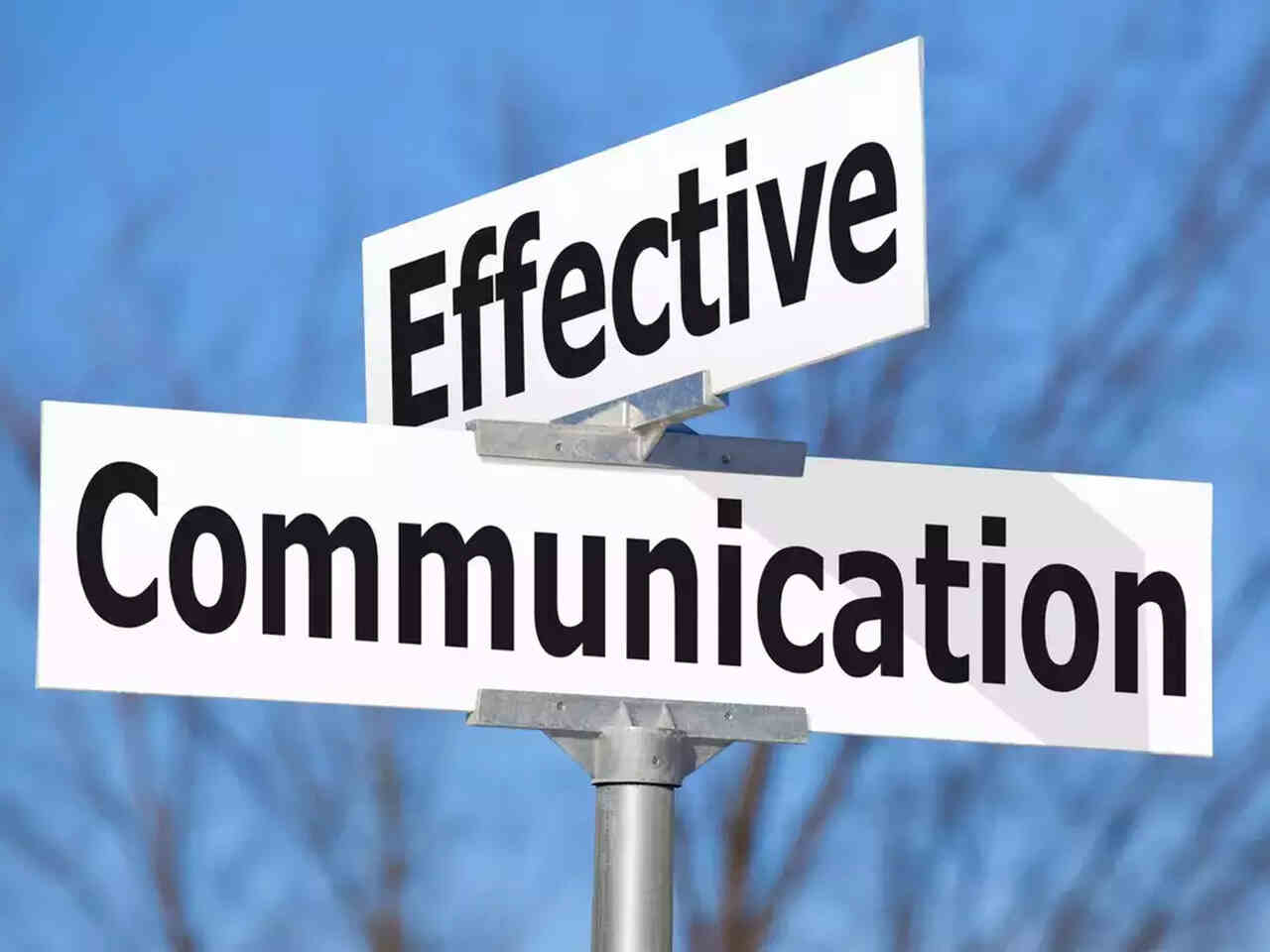
Strategy 4: Be Clear and Concise for Effective Communication Skills
Clarity and conciseness are crucial elements of powerful Communication Skills. When your message is clear and to the point, it’s easier for others to understand and respond appropriately. Being concise eliminates unnecessary information, preventing confusion and ensuring that your main message is received and retained by your audience.
The Role of Clarity and Conciseness in Communication Skills:
Effective communication isn’t just about sharing information; it’s about ensuring that your message is understood as intended. Clear and concise communication saves time, reduces misunderstandings, and creates a more engaging dialogue. Improving these aspects of your Communication Skills will make you a more effective and persuasive communicator.
Tips for Being Clear and Concise:
- Know Your Objective: Before you start speaking or writing, identify the core message you want to convey. Ask yourself, “What is the main point I want my audience to take away?” This clarity of purpose is the foundation of effective Communication Skills.
- Use Simple and Direct Language: Avoid using jargon, technical terms, or complex words unless necessary. Opt for straightforward language that your audience can easily understand. For example, instead of saying “utilize,” simply say “use.” This approach makes your Communication Skills more accessible to a wider range of listeners or readers.
- Stay on Topic: Focus on the main subject and avoid introducing irrelevant information. If you find yourself going off on a tangent, gently steer the conversation back to the original point. Staying on topic enhances your Communication Skills by ensuring your audience doesn’t lose interest or become confused.
- Break Information into Manageable Sections: When communicating complex ideas, break them down into smaller, digestible parts using bullet points, numbered lists, or headings. This structure makes it easier for your audience to follow along, improving the clarity of your Communication Skills.
- Practice the 60-Second Rule: If you can’t explain your point within 60 seconds, you might be including too much detail. Simplify your message until you can convey it clearly and concisely within this time frame. This exercise is an excellent way to refine and strengthen your Communication Skills.
- Ask for Feedback: After delivering your message, ask if the other person understood it or has any questions. This practice allows you to gauge whether your communication was clear and provides an opportunity for clarification if needed, further enhancing your Communication Skills.
By consistently practicing clarity and conciseness, you’ll become a more effective communicator, capable of delivering your messages in a way that’s both understandable and impactful. These skills will not only improve your professional interactions but also make your personal relationships more fulfilling and transparent.
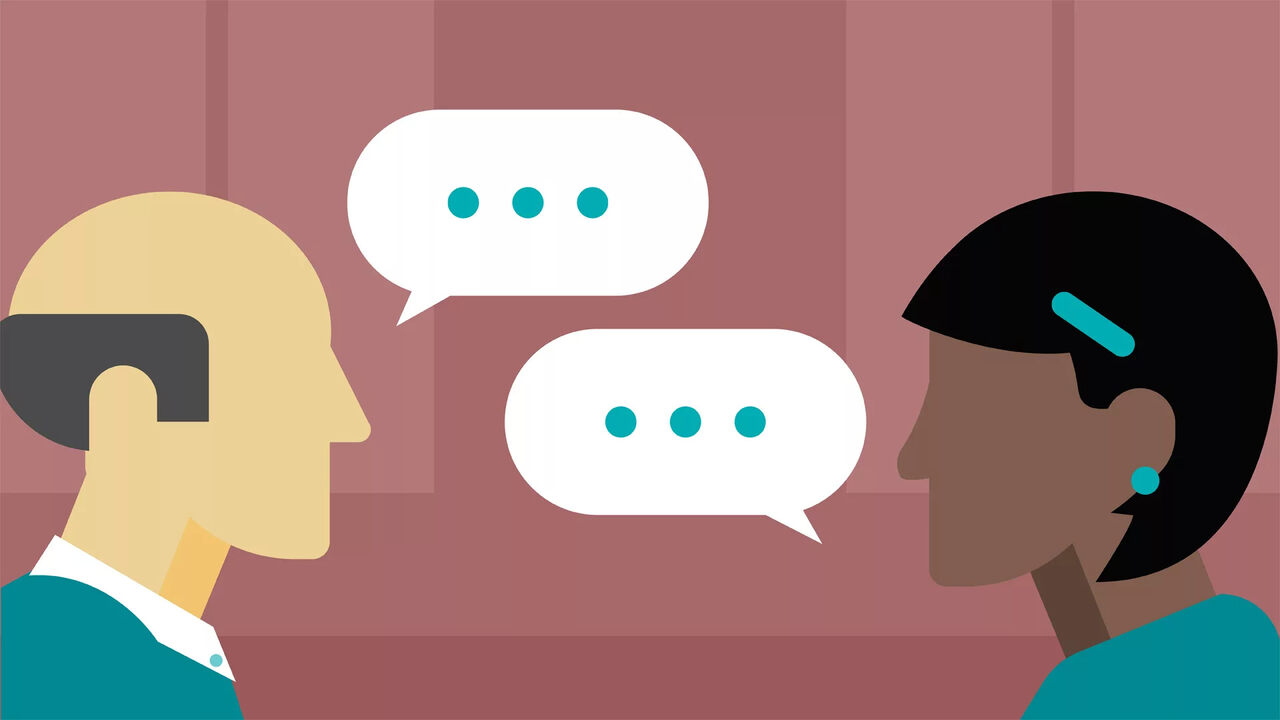
Strategy 5: Develop Active Listening Skills
One of the most overlooked aspects of strong Communication Skills is the ability to listen actively. Active listening means fully concentrating, understanding, responding, and remembering what the other person is saying. This skill helps build rapport, trust, and better relationships in both personal and professional settings.
How to Practice Active Listening:
- Maintain Eye Contact: Show that you’re engaged by looking at the speaker.
- Avoid Interrupting: Let the speaker finish their thoughts before you respond.
- Use Nods and Short Verbal Acknowledgments: This shows you’re following along, such as saying “I see” or “I understand.”
- Paraphrase What You’ve Heard: Summarize the speaker’s message in your own words to confirm understanding.
- Ask Clarifying Questions: If something isn’t clear, politely ask for more information.
Mastering active listening will enhance your Communication Skills, making interactions more meaningful and demonstrating that you value and respect others’ input.
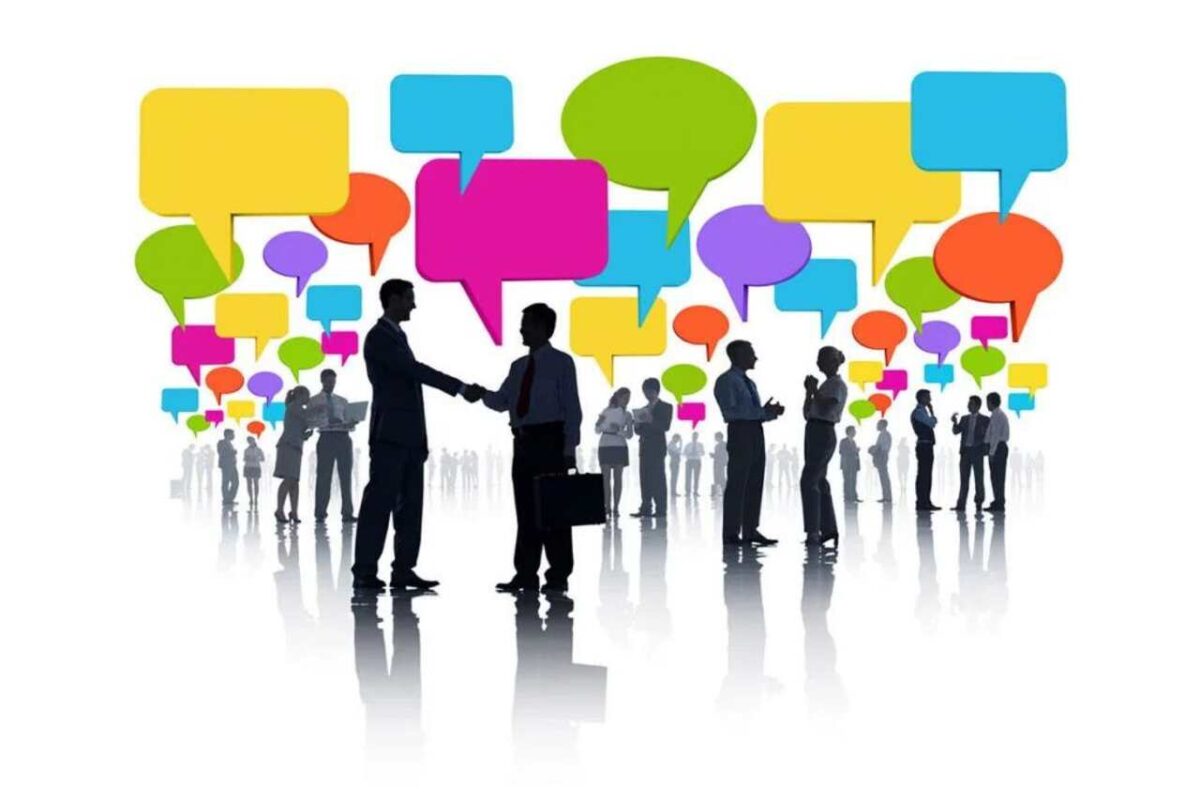
Strategy 6: Be Clear and Concise
Clarity and conciseness are crucial elements of effective Communication Skills. When you convey your message clearly and without unnecessary details, it ensures that your audience understands your point without confusion or misinterpretation.
Tips for Being Clear and Concise:
- Know Your Main Message: Before speaking or writing, identify the main point you want to communicate.
- Use Simple Language: Avoid jargon or complex terms, unless they are essential and understood by your audience.
- Stay On Topic: Stick to the subject matter and avoid deviating into unrelated areas.
- Break Information into Sections: Use bullet points, headings, or numbered lists to organize your thoughts, especially in written communication.
- Limit Repetition: Once you’ve made your point, move on to avoid redundancy.
By being clear and concise, you improve your Communication Skills, making it easier for others to grasp your message, which enhances understanding and productivity.

Strategy 7: Adapt Your Communication Style
Adapting your communication style is a cornerstone of effective Communication Skills. The ability to adjust how you convey messages based on your audience, situation, or context can make the difference between a message being received and understood or being ignored and misunderstood. This flexibility is essential in both professional and personal interactions, allowing you to connect with others on a deeper level and ensuring your messages are both clear and impactful.
Why Adaptability is Vital for Effective Communication Skills
Every individual or group has unique communication preferences, and what works well in one scenario might not be effective in another. By honing the ability to adapt your Communication Skills, you demonstrate empathy, respect, and awareness of others’ needs, which ultimately leads to more productive and harmonious interactions.
Here’s why adaptability is crucial:
- Enhances Clarity: Adjusting your language, tone, and style ensures that your message is clear and understandable to your audience.
- Builds Rapport: When you adapt to others’ communication preferences, they are more likely to feel heard, valued, and understood, strengthening your connection.
- Increases Engagement: Tailoring your communication approach keeps your audience interested and engaged, as they feel the message is relevant to them.
- Avoids Miscommunication: Being adaptable reduces the risk of misunderstandings, especially when dealing with diverse groups or complex topics.
Adapting Your Communication Style for Different Audiences
One of the most advanced Communication Skills is recognizing when and how to adjust your style based on your audience. Here are some examples of how you might adapt your communication in different situations:
- Communicating with Colleagues or Peers:
- Use professional yet approachable language.
- Incorporate industry-specific terminology when appropriate.
- Encourage open dialogue and feedback to foster collaboration.
- Addressing Clients or Customers:
- Be clear, concise, and professional.
- Focus on how your message benefits or solves their problems.
- Show empathy and understanding of their needs and concerns.
- Interacting with Friends or Family:
- Use a more relaxed and informal tone.
- Incorporate humor or personal anecdotes to build rapport.
- Be more expressive and open with your emotions.
By recognizing the differences in each audience, you can adapt your Communication Skills to ensure that your message is not only received but also resonates effectively.
Adjusting Communication Styles for Different Settings
Your ability to adapt Communication Skills also extends to the setting in which the communication takes place. Here’s how you can modify your style based on the context:
- Formal Meetings or Presentations:
- Use structured, organized language.
- Maintain a professional tone, and avoid slang or overly casual expressions.
- Support your points with data, facts, or visual aids to reinforce your message.
- Casual Conversations or Team Discussions:
- Allow for a more conversational tone.
- Encourage participation and active engagement from others.
- Use anecdotes or examples to make your points relatable.
- Written Communication (Emails, Reports, Messages):
- Adjust the level of formality based on your relationship with the recipient.
- Be mindful of grammar, punctuation, and clarity.
- Use bullet points, headings, or subheadings to make the information easily digestible.
The more you practice adapting your Communication Skills to different settings, the more versatile and effective you will become as a communicator.
Adapting Communication Skills Across Cultures
In today’s globalized world, cultural awareness is a vital part of effective Communication Skills. What might be acceptable in one culture could be perceived differently in another. Therefore, understanding and adapting to cultural nuances can prevent miscommunication and build more meaningful connections.
Tips for Adapting to Different Cultures:
- Research Cultural Norms: Before engaging with someone from a different culture, take time to research their communication styles, values, and etiquette.
- Respect Language Differences: If language barriers exist, speak slowly, use simple language, and avoid idioms or jargon that may be confusing.
- Be Observant: Pay attention to non-verbal cues, such as body language, eye contact, and personal space, which can vary widely between cultures.
- Be Open-Minded and Flexible: Approach cross-cultural communication with curiosity and a willingness to adapt. If you make a mistake, learn from it and adjust your approach.
By incorporating cultural awareness into your Communication Skills, you become more inclusive, respectful, and capable of connecting with diverse audiences.
Developing Adaptability in Your Communication Skills
Improving your adaptability requires practice, awareness, and a commitment to ongoing learning. Here are practical steps to help you refine this crucial aspect of your Communication Skills:
- Seek Feedback: Ask others how they perceive your communication style and where you could make adjustments. Constructive feedback is invaluable for growth.
- Practice Empathy: Try to put yourself in the other person’s shoes. How would they like to be spoken to? What tone or approach would resonate most with them?
- Experiment with Different Styles: Test various communication approaches in different situations and observe how they affect the interaction. Adjust accordingly based on what works best.
- Stay Informed: Continuously educate yourself on communication trends, especially in professional settings. This ensures that your Communication Skills remain relevant and effective.
Embracing Adaptability: The Key to Mastery in Communication Skills
The ability to adapt your communication style is a hallmark of truly effective Communication Skills. It demonstrates that you value others’ perspectives and are willing to adjust to meet their needs, which fosters stronger connections and more productive interactions. As you continue to refine this skill, you’ll find that your ability to communicate effectively in a wide range of settings will become one of your most valuable assets.

Strategy 8: Use Positive Language
Adopting positive language can transform your Communication Skills, making your interactions more engaging and uplifting. The way you frame your words not only affects how others perceive your message but also influences your mindset and approach to challenges. Mastering positive language can lead to more productive conversations, reduce misunderstandings, and foster a more collaborative environment.
Why Positive Language Matters in Communication:
- Creates a Supportive Atmosphere: Using encouraging words helps create an environment where others feel valued and respected. This atmosphere encourages open dialogue and more effective communication.
- Builds Trust and Rapport: When you focus on positive language, you naturally build trust with others. They’ll feel more comfortable sharing their thoughts, knowing that you approach communication with empathy and understanding.
- Increases Motivation and Engagement: Positive language inspires action and optimism. Whether you’re leading a team or having a casual conversation, your ability to use uplifting words can motivate and engage those around you.
By incorporating positive language into your Communication Skills, you pave the way for more meaningful interactions and stronger relationships.
Enhancing Communication Skills Through Positive Body Language
Positive language isn’t just about the words you say—it’s also about how you say them. Your body language plays a crucial role in conveying positivity and can significantly enhance your overall Communication Skills.
Tips for Positive Body Language:
- Maintain Open Posture: Keep your arms relaxed and uncrossed, signaling openness and receptivity.
- Smile Genuinely: A genuine smile can break down barriers and make others feel more at ease during conversations.
- Nod to Show Agreement: Nodding as you listen demonstrates that you’re engaged and understand the speaker’s message.
- Use Hand Gestures for Emphasis: Appropriate hand gestures can add emphasis to your words, making your message more impactful.
Combining positive language with positive body language will elevate your Communication Skills, making your interactions more engaging and effective.
The Transformative Power of Positive Language in Communication Skills
Integrating positive language into your Communication Skills can have a profound impact on how you interact with others, both personally and professionally. By consciously choosing words that uplift, inspire, and encourage, you create a more supportive environment that fosters understanding, collaboration, and trust.
Start applying these techniques today, and witness how positive language can transform your Communication Skills, making your interactions more effective, meaningful, and enriching.

Strategy 9: Master the Art of Asking Questions
Mastering the art of asking questions is a vital component of effective Communication Skills. It goes beyond simply seeking answers; it’s about engaging in a meaningful exchange that fosters understanding, curiosity, and stronger connections. Asking the right questions at the right time can significantly enhance the quality of your interactions, whether in personal conversations, professional settings, or social engagements.
Why Asking Questions Enhances Communication Skills
Asking questions is not just about gathering information; it serves multiple purposes that can enhance your overall Communication Skills:
- Shows Active Interest: When you ask questions, you demonstrate genuine interest in the other person’s thoughts, feelings, or experiences. This makes them feel valued and appreciated, which encourages more open and honest communication.
- Encourages Participation: Questions invite others to share their thoughts, transforming a one-sided conversation into a dynamic, two-way interaction. This helps build rapport and creates a sense of mutual respect.
- Clarifies Understanding: By asking clarifying questions, you can ensure that you fully understand the speaker’s message, reducing the likelihood of misunderstandings and enhancing the flow of communication.
- Facilitates Learning: Thoughtful questioning allows you to explore topics more deeply, gain new insights, and expand your knowledge, which in turn strengthens your Communication Skills.
The Impact of Effective Questioning on Communication Skills
Mastering the art of questioning can significantly enhance your Communication Skills in the following ways:
- Builds Deeper Connections: Asking thoughtful questions helps you connect with others on a deeper level, demonstrating empathy and understanding, which in turn strengthens relationships.
- Enhances Problem-Solving: By asking the right questions, you can uncover the root causes of issues and explore potential solutions more effectively, making you a valuable contributor in problem-solving scenarios.
- Improves Listening Skills: The process of asking and responding to questions naturally encourages active listening, which is a fundamental aspect of effective communication.
- Encourages Mutual Understanding: Effective questioning ensures that both parties involved have a clear and shared understanding of the topic being discussed, reducing the risk of miscommunication.
Balancing Asking and Listening
The art of asking questions is closely tied to active listening. When you ask a question, be sure to listen attentively to the response, allowing the other person to express their thoughts fully. This creates a balanced and effective communication dynamic, reinforcing your role as an engaged and empathetic communicator.
By mastering the art of asking questions, you significantly enhance your Communication Skills, making you a more effective and engaging communicator in any setting. This approach not only fosters better understanding and connection but also ensures that your interactions are more meaningful and productive.

Strategy 10: Develop Active Listening Skills
One of the most crucial aspects of improving your Communication Skills is mastering active listening. This skill allows you to understand others better, respond appropriately, and build stronger connections in both personal and professional settings.
How to Develop Active Listening Skills:
- Maintain Eye Contact: Show that you’re engaged by maintaining eye contact with the speaker. This gesture demonstrates your interest and helps establish a connection.
- Avoid Interrupting: Let the speaker finish their thoughts before you respond. Interrupting can be seen as disrespectful and can hinder effective communication.
- Ask Clarifying Questions: If you’re unsure about something, ask questions to clarify the speaker’s point. This not only shows that you’re paying attention but also ensures you fully understand the message.
- Paraphrase and Summarize: Repeat back what the speaker said in your own words to confirm your understanding. This reinforces the message and demonstrates that you’re actively engaged.
- Provide Feedback: Use non-verbal cues such as nodding, smiling, or using expressions that show you’re attentive and engaged.
By developing active listening skills, you enhance your overall Communication Skills, leading to more meaningful and productive conversations. This approach helps in building rapport, resolving conflicts, and fostering a positive communication environment.
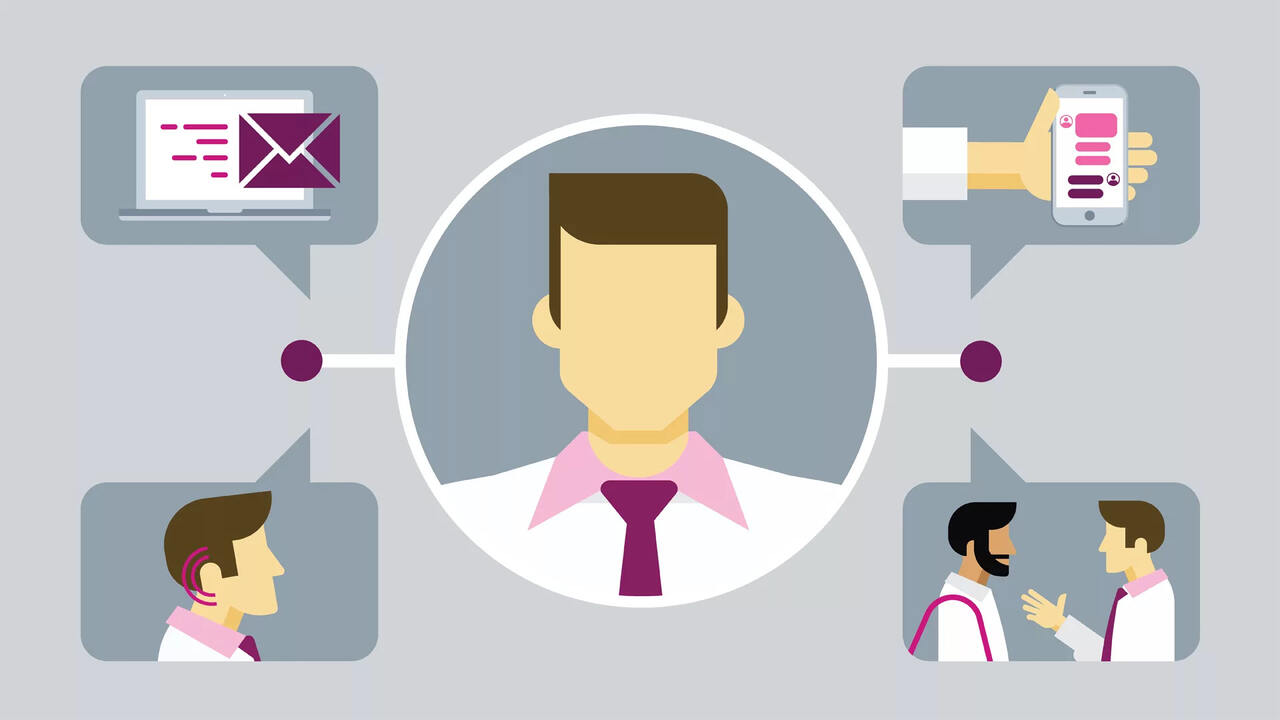
Mastering Communication Skills: The Key to Lasting Success
Mastering Communication Skills is more than just a one-time effort; it’s an ongoing journey that requires dedication, self-awareness, and consistent practice. As you refine these skills, you’ll find that your ability to express your thoughts clearly, listen actively, and understand others improves dramatically.
This journey not only enhances your professional image but also allows you to build stronger personal relationships and create more meaningful connections in every area of your life.
By consciously applying the strategies discussed, such as active listening, adapting your communication style, and using positive language, you will notice a significant shift in how you interact with others. This shift will not only help you convey your thoughts and ideas more effectively but also foster a deeper sense of empathy, trust, and mutual respect in your interactions.
Remember, communication is a skill that impacts every aspect of your life, from personal relationships to professional success. Start integrating these techniques into your daily routine, and you’ll witness the transformation in your Communication Skills as they evolve, opening up new opportunities, strengthening your connections, and allowing you to make a lasting impact.
Now is the perfect time to take charge of your communication journey. By embracing these strategies, you’re not just improving your Communication Skills; you’re investing in your future, creating a pathway to success, and ensuring your voice is heard in every conversation.
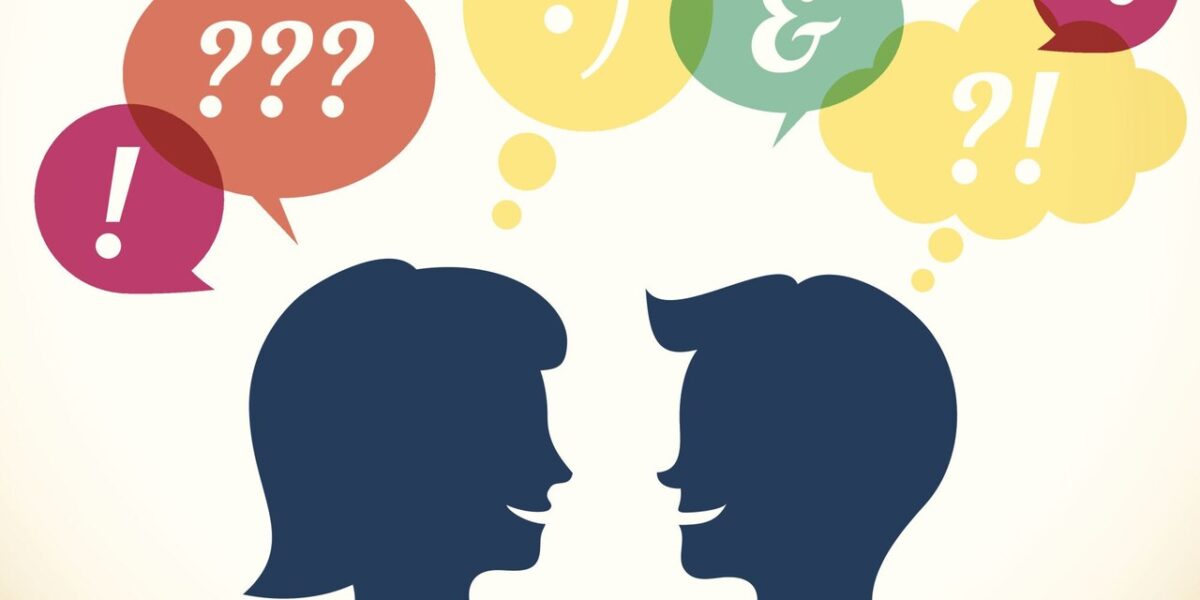
FAQs on Communication Skills
Why are Communication Skills important in the workplace?
Communication Skills are crucial in the workplace as they help in effectively conveying ideas, building relationships, resolving conflicts, and enhancing teamwork, which ultimately leads to increased productivity.
How can I improve my verbal Communication Skills?
To improve your verbal Communication Skills, practice speaking clearly, use appropriate vocabulary, maintain eye contact, and be aware of your tone and pace. Regular practice and seeking feedback can also be beneficial.
What are non-verbal Communication Skills, and why are they important?
Non-verbal Communication Skills include body language, facial expressions, gestures, and posture. They are important because they convey emotions and attitudes, often having a greater impact than words alone.
How does active listening contribute to effective communication?
Active listening involves fully concentrating on the speaker, understanding their message, responding thoughtfully, and retaining information. It helps build trust, enhances understanding, and fosters stronger connections.
Can Communication Skills be developed over time?
Yes, Communication Skills can be developed with practice, self-awareness, and a willingness to improve. Engaging in regular conversations, seeking feedback, and learning from others can enhance your skills.
What role does empathy play in communication?
Empathy allows you to understand and relate to others’ feelings, making your communication more compassionate and effective. It helps build rapport and trust, making interactions more meaningful.
How can I communicate effectively during conflicts?
To communicate effectively during conflicts, stay calm, listen actively, avoid blaming, express your feelings clearly, and focus on finding a solution. Practicing empathy can also help de-escalate tension.
What are the barriers to effective communication?
Common barriers include language differences, cultural misunderstandings, distractions, emotional barriers, and assumptions. Being aware of these barriers can help you address and overcome them.
How can I improve my written Communication Skills?
To improve written Communication Skills, practice writing regularly, organize your thoughts, use clear and concise language, proofread your work, and adapt your tone to your audience.
How do Communication Skills affect leadership?
Strong Communication Skills are essential for effective leadership. They enable leaders to convey their vision, inspire and motivate teams, provide feedback, and foster an open and transparent work environment.
What are some techniques to overcome nervousness when speaking in public?
To overcome nervousness, practice regularly, prepare thoroughly, focus on your message, maintain eye contact, and use deep breathing techniques to stay calm.
Why is feedback important in communication?
Feedback helps you understand how your message is received and allows you to adjust your communication style accordingly. It promotes improvement and ensures clarity in interactions.
How can I communicate more assertively without being aggressive?
To communicate assertively, express your thoughts and feelings clearly and respectfully, use “I” statements, maintain good posture, and listen actively to others’ viewpoints.
How can I adapt my communication style to different audiences?
Understanding your audience’s needs, preferences, and expectations is key. Adapt your language, tone, and body language to suit the context and the individuals you are communicating with.
How do Communication Skills impact personal relationships?
Effective Communication Skills help build trust, understanding, and intimacy in personal relationships. They enable you to express your feelings, resolve conflicts, and strengthen connections.
How does cultural awareness affect communication?
Cultural awareness helps you understand and respect differences, avoiding misunderstandings and fostering effective communication across diverse backgrounds.
How can I use technology to improve my Communication Skills?
Technology can enhance Communication Skills through tools like video conferencing, online courses, and communication apps. These platforms allow you to practice, receive feedback, and interact with others.
Why is body language important in communication?
Body language complements verbal communication by reinforcing your message, expressing emotions, and building rapport. It can enhance or contradict what you’re saying, making it a critical aspect of effective communication.
How can storytelling improve Communication Skills?
Storytelling engages the audience, makes your message memorable, and helps convey complex ideas in a relatable way. It’s an effective way to connect with others emotionally and convey your point more persuasively.
What are the benefits of improving Communication Skills?
Improving Communication Skills leads to better relationships, increased confidence, enhanced problem-solving abilities, greater career opportunities, and a more fulfilling personal and professional life.
Thank you, and increase your productivity even more here.
